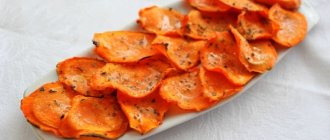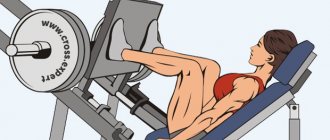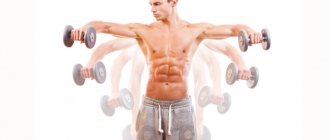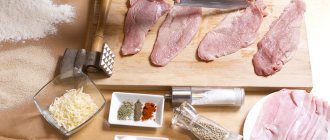Creating a large calorie deficit
The human body is perfectly adapted to exist in conditions of hunger.
Therefore, when you sharply reduce the caloric intake of your diet, the body immediately adapts to the new conditions and begins to save energy. The 2009 study Metabolic and behavioral compensations in response to caloric restriction: implications for the maintenance of weight loss showed that severe calorie restriction (890 kilocalories per day) reduces the body's energy expenditure. Three months after finishing the diet, study participants spent 431 kilocalories less per day than the control group, and after six months - 240 kilocalories less.
The 2006 Metabolic response to short-term 4-day energy restriction in a controlled study found that limiting calories to 1,114 calories per day reduced basal metabolic rate by 13%, and to 1,462 kilocalories per day by 6%.
Metabolic adaptation to caloric restriction and subsequent refeeding: the Minnesota Starvation Experiment revisited. A 2015 study found that three weeks on a strict diet restricting calories to half normal reduced resting energy expenditure by 266 kilocalories per day and walking energy expenditure by 22%.
When you achieve your weight loss goals and switch to a regular diet, your body, tuned to conserve energy, consumes calories at the same rate, but spends them very reluctantly. As a result, you quickly gain back the lost pounds.
How to fix
Do not limit your diet to more than 25% of your caloric intake, taking into account your weight, age, gender and lifestyle. Lifehacker talked about how quickly you can lose weight without harming your health in this article.
Does weight come with water?
Elena Nikitina, Candidate of Medical Sciences, employee of the Department of Clinical Nutritionology of RUDN University answers :
— Solid food, for the assimilation of which the body spends up to 10% of the energy received, is processed slowly, lingers in the stomach and creates a feeling of fullness for a long time. Liquid calories are absorbed instantly, with virtually no energy consumption. Therefore, a person, unnoticed by himself, drinks more than he planned. And the amount of food eaten that we “moistened” with the drink is greater. You should not quench your thirst with soda and fruit juices, especially packaged ones. The sugar content in them is approximately the same, and after them you want to drink even more. There are no less carbohydrates in juices than in confectionery products. For example, a glass of grape juice has the same calorie content as a serving of chocolate cake. There are a lot of calories and sugar in milkshakes and alcoholic drinks. Tea and coffee in their pure form contain virtually no calories. But they are seriously “weighted down” by all kinds of additives. For example, a cup of coffee contains only 2 kcal, coffee with sugar and milk will amount to 75 kcal, and mocha coffee with cream and chocolate will total 275 kcal (the same as in a full-fledged hot dish).
Question answer
What drinks have the most calories?
Calorie content of drinks (kcal per 100 ml)
- water - 0
- tea - 1
- coffee - 1
- kvass - 27
- tea with sugar (1 spoon) – 28
- grapefruit juice – 35
- sweet soda – 42
- fruit drink - 46
- coffee with sugar (1 spoon) and milk - 75
- grape juice – 75
- milkshake – 96
- hot chocolate – 110
Alcoholic drinks
- beer - 43 (light), 48 (dark)
- champagne - 64 (dry), 100 (sweet)
- vodka – 235
- cognac – 239
Skipping meals
Many people believe that by skipping meals they will lose weight faster. For example, a person skips breakfast or goes without lunch at work, but at the same time eats a very rich and high-calorie dinner.
This weight loss strategy does not bring good results. First, after a whole day without food, extreme hunger will cause you to eat much more than usual. Second, skipping meals can negatively impact your blood sugar, metabolism, and energy levels.
The 2003 Association between Eating Patterns and Obesity in a Free-living US Adult Population study suggested that eating habits are to blame for excess weight gain. The results showed that eating four meals a day reduced the risk of obesity compared with three or fewer meals a day. In addition, obesity rates were significantly higher among participants who skipped breakfast, as were those who ate breakfast and dinner outside the home.
How to fix
Try to eat at regular intervals from the moment you feel hungry. For example, if you're hungry when you wake up or know you'll be hungry at 10 or 11 a.m., prepare a nutritious breakfast and divide your subsequent meals into lunch, a small snack, and dinner. If the first signs of hunger appear closer to lunch, leave lunch, a small snack and dinner, but try to have meals at the same time.
False Expectations
False diet expectations go in two different directions.
The first stems from the belief that only 5-10% of people succeed in losing weight (based on old and misunderstood research with little real-life application). As a result, people are programmed for failure even before they begin any action and in their hearts they do not really believe that they will be among the lucky 5-10%.
On the other hand, expecting success in spite of everything, the mindset that losing weight is easy, quick and within the power of everyone, can also be harmful, as can the expectation of failure.
Another false expectation that leads to disappointment is about what will happen when the goal is achieved. People believe that losing weight will change everything: they will find a life partner, they will get a promotion. Some people think that this will change people's opinion of them from "lazy and gluttonous" to "strong-willed and disciplined." This happens, but there is still no direct connection. Once a person realizes that the world is not filled with rainbows and unicorns, all hopes associated with losing weight are dashed, and the weight often returns.
Lack of protein in the diet
Protein keeps you full, reduces calorie intake, and plays a key role in maintaining muscle mass during weight loss.
A randomized crossover, pilot study examining the effects of a normal protein vs. high protein breakfast on food cravings and reward signals in overweight/obese “breakfast skipping”, late-adolescent girls 2014 showed that a high-protein breakfast (35 and 13 grams of protein) reduces cravings for sweet and salty foods between meals.
Study The influence of higher protein intake and greater eating frequency on appetite control in overweight and obese men. 2010 found that for the same daily caloric intake, a high protein intake (138 grams per day) provides greater satiety compared to a normal intake (71 grams).
Feeling full directly affects your calorie intake throughout the day. Twelve-day study Protein leverage affects energy intake of high-protein diets in humans. found that people consuming 30% of their daily calories from protein ate an average of 575 fewer calories than those consuming 15% of their calories from protein.
In the process of losing weight, you inevitably lose muscle mass along with fat. Protein helps protect the body from this unpleasant effect of dieting. The 2013 Normal Protein Intake Is Required for Body Weight Loss and Weight Maintenance, and Elevated Protein Intake for Additional Preservation of Resting Energy Expenditure and Fat Free Mass found that high protein intake (2.1 grams per kilogram of body weight) during a low-calorie diet allows you to maintain muscle mass, increase energy expenditure at rest and lower blood pressure.
How to fix
Aim for 30% of your daily calories from protein. You can get it from these products.
How to lose weight correctly. 29 of the worst mistakes when losing weight
Naturally, there are many more errors, but I tried to highlight the most common, curious and strange in my subjective opinion.
The desire to burn fat using the “greenhouse effect” or through massages
People believe that the next miracle “Cream”, a belt for losing weight and pumping up abdominal muscles, a bath, shaking fat deposits on special vibration machines will help them lose weight.
It gets a little funny when we start to understand what the fat burning process is:
The fat burning process is a CHEMICAL REACTION
The term “fat burning” is slang. No “burning” actually occurs.
Fat does not burn under the influence of temperature, fat OXIDIZES.
Lipolysis is the process of breaking down triglycerides into fatty acids and glycerol.
But this is not fat burning yet.
Roughly speaking, fat breaks down into bricks that begin to circulate in the blood.
Next, droplets of fat enter our muscles, where they can be used as fuel.
Fat burning is the use of fatty acids and glycerol released into the blood as a result of lipolysis as an energy source.
Now do you understand how stupid it is to wrap yourself in cling film, use all sorts of bullshit like weight loss belts, and hope that a sauna or steam bath will make you lose weight?
There is NO “greenhouse effect” if we are talking about fat burning!
But why tell this to the owners of massage and SPA salons, if you can say that: “A miracle phyto-barrel with spruce branches grown in an ecologically clean area of alpine meadows magically gets rid of extra pounds,” and sell it at a high price?
That's right, no reason. It is not profitable!
In a sauna, bathhouse, fat and other cells in our body LOSE WATER! But the number of nuclei of these cells does not decrease. Guess what happens after you drink a couple of glasses of water after a bath? Fat cells will fill with water and the weight will return to its place.
But who cares? Time wasted, money was taken from a fool.
But what did you expect from one procedure? Need to repeat!
Friends, do not fall for this kind of scam.
2. The desire to lose weight in only one part of the body
“Everything is fine with me, I just need to lose weight in my hips and stomach.”
I think you have often heard this from your friends and acquaintances.
But again, no “distillation of fat” from one place to another or fat burning in one place is possible (there are a number of studies on local fat burning, but there is no reliable evidence yet).
Fat burning is triggered by our hormones that circulate ALL OVER THE BODY!
The hormone cannot circulate only in one place (for example, in the thighs), it will rush throughout the bloodstream, in both circles of blood circulation, penetrating wherever it can reach (through capillaries, vessels, veins, arteries) and contact tissues through receptors.
You can briefly increase the concentration of hormones in one place, using pumping, for example, but all this is weakly effective to focus on this.
But I think you've noticed that fat burns at different rates in different places.
This is due to two points:
- Capillarization of tissues.
- Sensitivity of receptors to hormones.
The number of capillaries in different places of our body is not the same.
Accordingly, it is easier for hormones to get to some places, and more difficult to get to others.
This is simplified, friends, but I think the picture is clear.
By the way, a sauna and bath after a workout can simplify the penetration of hormones into tissues by EXPANDING capillaries.
The roads along which hormones travel have become wider and easier to reach.
Our fabrics are not uniform. In some places there are more ALPHA-2 adrenergic receptors, and in some places there are more BETA-2 adrenergic receptors.
- If there are a lot of ALPHA-2 adrenergic receptors in some place, then fat burns SLOWER!
- If there are a lot of BETA-2 adrenergic receptors in some place, then fat burns FASTER!
In the hands and calves, for example, most have more BETA-2. And in the hips and stomach there is ALPHA-2.
Hence the misconception that you can lose weight in certain places (since we gain weight in different places at different speeds).
Almost complete refusal to eat
Another common mistake.
Abrupt refusal to eat leads to a slowdown in metabolism, which almost completely stops fat burning.
And after you relapse (and this will definitely happen), you will gain even more fat, because the body will think: “What if this happens again? We need to protect ourselves in case of famine.”
4. Failure to comply with the basic rule of any diet
The basis of any diet is CREATION OF CALORIE (energy) DEFICIENCY in our body.
- If you consume MORE calories than you expend, then you GET FAT!
- If you consume the SAME calories as you expend, then you remain the same!
- If you consume LESS calories than you burn, then you WILL LOSE WEIGHT!
Nothing in our body comes from nowhere.
If you get less energy than you expend, you will definitely lose weight.
Lack of fractional nutrition
Reducing calories can cause your metabolism to slow down, which will stop you losing fat.
Therefore, we need to trick our body by starting to eat more often, but in SMALL PORTIONS!
The body will think that: “I eat often, which means there is no point in slowing down the metabolism, there is enough energy.”
But in total you will eat LESS per day! Therefore, you will lose weight.
6. Complicated nutritional plans at the initial stage
It seems to people that unusual paths lead to everything unusual.
That's why various idiotic diets and nutritional plans appear.
Kremlin diet, Larisa Dolina diet, chocolate diet, cabbage diet, green diet, etc.
It’s as if the more sophisticated you eat, the faster the results will be.
But it was not there.
The more degrees of freedom you have (foods in the diet, supplements, diet changes), the MORE DIFFICULT IT IS TO ANALYZE the results.
The caloric content and dietary fat are not uniform, so it is not clear how to manipulate it all.
7. Ignoring daily and other activities other than training
Many people think that how much weight they will lose depends on training.
A person does not take into account his physical activity during the day + the basic energy pool (metabolism, heat transfer, etc.).
Let's say he consumes 2000 kcal per day.
He works in an office, sits on his butt all day, and in the evening he goes to training and controls his nutrition. And indeed, he is gradually losing weight.
What if this person is a loader and runs around like crazy all day, with heavy weights on his arms and back?
These 2000 kcal per day will be CATASTROPHICALLY not enough for him, because... he will spend 400-700 kcal per day more.
Hence, the metabolism slows down and fat burning stops.
You need to lose weight gradually.
8. Using ineffective types of physical activity
I’ve heard it a thousand times: “What if I don’t like lifting weights? This is so stupid. I’d rather go swimming or dancing.”
This is what one friend of mine said, who, naturally, was shapeless.
The point is not what is stupid and uninteresting and what is not.
There are things that are effective and things that will just burn you out (or drain you of your money) by wasting your time.
Physical activity in the gym allows you not only to get rid of excess fat, it allows you to make your muscles beautiful!
Are thinness and beauty the same thing? NATURALLY NOT!
There are a lot of dead people around, but not all of them look sexy.
If you just get rid of excess fat, what will happen? Flabby, sagging muscles.
Therefore, various group classes, instead of a gym, step, cycle, body sculpting and other smart-ass, ingenious types of training are NOT EFFECTIVE!
Muscles grow and transform from a CERTAIN TYPE OF PHYSICAL ACTIVITY! From high-volume training with progressive load.
Ignorance of your “reference point”
The starting point is the number of calories you need during the day in order not to gain weight or lose weight.
It is needed in order to begin to gradually reduce calorie intake.
Reducing calories leads to fat burning.
And if you don’t know your starting point, your caloric intake is different every day, then how can you control weight loss?
Lack of calorie counting
It follows from the previous point.
If one day you ate 1800 kcal, and the next 1920, then 1750, and then 2100, then what kind of fat burning can we talk about?
All this does not allow us to analyze progress.
You don’t understand where to start from in order to gradually reduce your daily caloric intake, so you are marking time.
Over time, calorie counting fades into the background, because... you learn to feel and understand your body. But at the initial stage, there is no trace of this.
Lack of accounting for the proportion of BZHU
We can gain the required calorie content if we eat only potatoes, but is this right?
For the normal functioning of our body we must consume:
- Squirrels.
- Fats.
- Carbohydrates.
Not counting vitamins, minerals and other macro and microelements.
Each nutrient plays an important role in our body. If any of them is deficient, an imbalance that is not entirely beneficial for us may arise.
12. Using a lot of high GI foods
The glycemic index (GI) is a QUANTITATIVE indicator of the absorption of carbohydrates.
After eating foods with a high glycemic index (fast-digesting carbohydrates, mainly), a large amount of GLUCOSE begins to circulate in the blood.
In response to the influx of glucose, our pancreas begins to produce INSULIN (the transport hormone of our body, which transports glucose to places of use).
Insulin is an antagonist of somatotropin (growth hormone, which is one of the fat-burning hormones).
In other words, INSULIN STOPS THE FAT BURNING PROCESS.
That is why the more sweet and starchy foods you eat, washed down with beer, the more difficult it is for you to lose weight.
You can look at the GI of various foods in this table.
13. Changing the training program too often while cutting
There is absolutely no need for extra stress during a time of energy deficiency.
Therefore, the desire to do better can only make things worse.
The greater the training stress during cutting, the greater the likelihood of losing more muscle.
Best option: Leave your strength training unchanged. Plus, add cardio.
Increasing the number of repetitions with reduced rest during training
Very often you can hear that during drying you need to reduce working weights, increase the number of repetitions and reduce rest between approaches.
Reducing working weights will lead to a decrease in muscle size (why does the body need large muscles that consume a lot of energy, when you can reduce them and reduce energy consumption?).
Plus, the new intensity of the workout will cause unfamiliar stress in the body, which will actually help the catabolism of adipose tissue, but, unfortunately, not only adipose tissue.
Our muscles will burn much faster.
Therefore, if time is limited and you don’t care how much muscle you have left, then this is, in principle, the way out, but if muscles play a key role for you, then leave your training program unchanged.
15. Lack of developed “muscle feeling”
Most people are not willing to spend 1-2 months working with reduced weights to perfect technique and learn to FEEL the contraction of the target muscles.
As a result, they immediately begin to work with working scales at that time in order to quickly pump up their bitsuha.
The irony is that in the end they waste much more time because... a smeared load that does not hit the target accurately can only work at the initial stage.
And then, dear friends, a “plateau” comes, at which it becomes almost impossible to progress.
Plus, there is a danger that if you do not work out the correct technique for doing the exercises at the initial stage, this will most likely lead to further injury.
The weights are growing, the technique is crooked, the load is unequally distributed, hello sprain or rupture of muscles, tendons and ligaments, injuries to the joints and spine...
Daily lack of sleep
Nature has not yet come up with a better way to “reboot” the system than sleep in one form or another.
During sleep, restoration processes, both tissue and energy, are actively launched in our body.
If we constantly ignore this process, sleep for 4-5-6 hours, then we must consciously understand that we are not recovering.
And while you are young and beautiful, these things do not particularly bother you, but against the backdrop of strength training, work, and constant lack of sleep, all systems of the body experience colossal overload.
Especially if you are also a fan of partying with friends on weekends.
Over time, one of the body's systems gives up and begins to act up.
Perhaps it will be energy, and you will feel constantly tired in the morning.
Perhaps it will be the immune system and you will get sick.
Or maybe endocrine... Then get ready for increased insulin resistance or other disorders.
In any case, everything in our world is balanced.
If you under-recover, then you are taking risks on your own.
No training diary
“How to increase working weights if I press 10 reps of 3 sets every workout?”
The problem is that most people don't keep a training diary.
Trite?
What if I tell you that just by starting to keep a training diary, I gained 12 kg over the course of a year?
And I increased the working weights in all exercises.
It seems to us that we can never become stronger.
But as soon as you start recording your results on paper, you will notice how you begin to do more.
Let’s say in your last workout you bench pressed 60 kg in 3 sets of 10 reps.
What if I tell you to hang one more pancake on each side, 1.25 kg?
The weight will become 62.5 kg. How much will you squeeze?
Probably 8 reps on the first set, 7 on the second, 6 on the third.
"For what? Didn’t I do fewer repetitions?”
Yes, but the load has increased!!! Not much, but it has grown.
I am sure that in the next workout you will be able to do 62.5 kg for 9 reps in the first approach, 8 in the second and 7 in the third.
What has changed? You did 1 more rep in each set! This is already a PROGRESSION OF LOADS!
Thus, little by little, little by little, you will increase and progress the load.
A training diary will let you know how much you need to do in each set. In every exercise.
The “Fuck it all” effect
There is a psychological moment when a person goes on a diet for some time, and then allows himself to eat something that is not included in the menu.
For example, Snickers.
Then comes the feeling of guilt...
And instead of simply continuing to eat properly, the person overeats even more, thereby worsening the situation.
Solution: After breaking the regime, simply continue to calmly follow the diet without depressing yourself. As a result, one meal won't upset your balance too much.
I have a cool article about this psychological moment here.
Excessive self-pity
Many people constantly try to induce self-pity.
“I’m so unhappy, I have to limit myself, look how great I am.”
Try to get rid of this habit. Almost no one is interested in this. People are selfish by nature.
Your problem will not be solved, and you will ruin your opinion of yourself.
Just calmly do what you have to do, and your results will speak for you.
20. Lack of understanding why all this is needed
There are situations when you don’t understand why you are doing something.
For example, your husband plays sports and wants to see a sexy girl next to him, not an exhausted housewife.
He buys a gym membership for his wife and makes sure she works out.
Maybe the situation is not entirely correct in some ways, but this is a normal desire for both men and girls. Seeing an attractive person next to you.
After all, for a man, the way his girlfriend looks directly speaks of his success.
If she is fat and not very beautiful, then this means that the man is most likely weak, because... failed to win a highly competitive partner.
But let's skip the details.
The girl starts going to the gym, but very quickly her motivation drops.
Why? SHE DOESN'T UNDERSTAND WHY SHE NEEDS THIS!!!
After all, she is married, she has children, she cooks, and appearance is not the main thing, the main thing is inner beauty.
She begins to be lazy during training, and afterward she eats the whole thing with ice cream.
There is zero progress, my mood is bad (my husband doesn’t want me), my motivation is zero.
What to do?
Understand why this benefits YOU!
I’ll immediately tell you a few reasons that came to mind first:
- BEAUTY. You will enjoy yourself with pleasure and catch the envious glances of women and your husband’s friends.
- HEALTH. No fatigue, bad breath or sweat, no high blood pressure, etc.
- SELF-REALIZATION. Against the backdrop of increased attention and good mood, various creative ideas begin to pop into your head, you realize yourself and create.
- NO CONSTRAINT. You stop being afraid that some of the things will not suit you. You just take the item you like in the store, and you are already sure that it will fit perfectly.
- SEX. Sex with your husband or beloved man becomes brighter. Inner beauty, of course, is VERY IMPORTANT (*irony), but it is important for a man to understand and see a beautiful girl/woman next to him. And even if he tells you that this is not important, but when you see a slender, sexy person on the street, watch his reaction, everything will immediately become clear to you.
I think there is no point in listing further. Understand the BENEFIT FOR YOURSELF and everything will fall into place.
21. Too sudden transition to a new type of diet
Let's say a person ate haphazardly, but suddenly he decided to change his body and life.
He sharply limits calories and begins to eat according to the plan.
What can happen? METABOLISM SLOWdown.
A sharp lack of energy is STRESS for the body. He will do his best to encourage you to eat a little more.
You will be terribly hungry, feel tired and lethargic (metabolism has slowed down, the body is trying to spend less energy), and want to sleep.
Switching to a new type of diet is GOOD. But don't do it abruptly. The smoother you make this transition, the less likely it is that your body will react negatively.
Piecework
Many people think they are not eating enough when in fact they are eating too much!
They have a meal plan, but in between they will eat either a banana, or yogurt, or a candy with tea.
As a result, they constantly fall out of the calorie range and even begin to gain weight.
It's not even their fault.
Our bodies have amazing adaptation mechanisms.
Do you remember how you closed the front door today? Or how did you put on your slippers in the morning?
There are many things that we don't notice because... the brain immediately erases these moments as unnecessary, in order to free up free space and not clog up the memory.
Did you know that if you don’t think and record your dream within 2-3 minutes after getting up, then you WILL NOT BE ABLE TO REMEMBER IT, because the body understands that this is not necessary information.
Same with piecework. Often people don't even remember eating anything else during the day.
If you decide to lose weight, then stick to the established plan, otherwise you risk wasting a lot of time.
Insufficient water consumption
Water takes part in almost all reactions of our body.
With its deficiency, all reactions naturally slow down.
Try to drink 2-3 liters of clean water per day and you will see how your progress can accelerate.
24. Lack of analysis and correction of fat burning
This applies especially to beginners.
They just eat and don’t know their starting point and calorie content. But they want to lose weight.
If you don’t understand where you are going, then how can you manage this process?
Count your calories, analyze the results every week (weight, reflection in the mirror), and adjust your progress.
Expecting instant results
Everything is simple here.
Nothing happens for nothing.
If you've been eating the way you wanted all your life and haven't trained and gained 110 kg, then don't expect the weight loss process to be immediate.
Over time, our body shifts its “reference point” and gets used to its weight and body composition.
Accordingly, the longer you have been overweight, the more difficult it is for you to lose weight.
Be patient. If you do everything correctly, then progress is inevitable, but don’t expect that you will instantly, in a couple of workouts or useless procedures, get rid of the weight that has been with you for years.
Patience and hard work, friends.
Dinner at night
I understand that everyone has a different schedule, a different amount of free time, but a big mistake is almost complete absence of food during the day and overeating at night.
Such long breaks in food slow down metabolism.
And overeating before bed makes our pancreas work harder, injecting large volumes of insulin into the blood.
Insulin stops the effect of fat-burning hormones produced during sleep (growth hormone, for example), because is their antagonist.
Such manipulations are not very useful from the point of view of fat burning, and even health.
27. Rely on fat burners, in the absence of a diet
I very often come across the fact that girls buy many different fat burners, use LPG, peptides, clenbuterol, but continue to EAT FOOD WITH A HIGH GI (glycemic index). Sweets, flour, all kinds of yoghurts, cheeses, fruits, etc.
And they wonder: “Why am I not losing weight?”
And because there are fat burning ACCELERATORS, but NO SUBSTITUTES.
If you don't control your diet, it will be very, very difficult for you to lose weight.
By the way, I have cool articles about various additives and how I experimented with them.
For example, I used clenbuterol for weight loss.
And here, I introduced you to what yohimbine hydrochloride is.
28. The transition from knowledge to action takes too long
There is such a type of people: eternal students.
They are constantly studying something, receiving some new information, but NEVER IMPLEMENT ANYTHING!
Sometimes the hardest thing is STARTING to do something.
When you start doing at least something, then it will be easier to correct your movement, because theory, as a rule, is VERY FAR from practice.
Each of us is individual, so we need to listen to our body and analyze what will be effective for us.
If you're stuck and don't know what to do, after learning everything you can on the topic, just take a step, get started! And you will be surprised how the road appears in front of you by itself.
Lack of a specific goal and crazy desire
When you don’t know what you want, the result will be blurry and weakly expressed.
Many people say: “I want to pump up, but without fat, and I want it to work on the horizontal bars, and I will also dance and practice boxing.” As a result, failure is everywhere.
Remember:
“Loads that are multidirectional in nature give an average, unexpressed result”
Focus on one thing and achieve maximum results.
No wonder there is a proverb:
“If you chase two hares, you won’t catch either”
Liquid diets
Often people who want to lose weight with minimal effort prefer liquid diets. However, fruit or vegetable juices won't provide your body with enough fiber and protein, key nutrients needed to feel full.
The 2000 Dietary Fiber and Energy Regulation study found that fiber helps control caloric intake and reduces the risk of obesity.
These findings were confirmed by the 2011 study Effects of dietary fiber on subjective appetite, energy intake and body weight: a systematic review of randomized controlled trials. Scientists have found that dietary fibers high in pectin (apples, citrus fruits) and beta-glucan (oats, barley) reduce appetite, which leads to less calorie consumption.
How to fix
Don't go on liquid diets, get enough protein and fiber.
Elimination of fats
Fats are essential for healthy skin, joints, good vision, memory and mood. In addition, without enough fat, vitamins A, D, K and E are not absorbed in the body, which can lead to vitamin deficiency and health problems.
To lose weight, it is more important to reduce the amount of carbohydrates, not fats. Although fat contains about 9 kilocalories per gram, and carbohydrates and protein contain only 4 kilocalories, various studies show that low-carb diets are more effective than low-fat diets.
For example, the 2003 study A Low-Carbohydrate as Compared with a Low-Fat Diet in Severe Obesity found that after six months on a low-carbohydrate diet, participants lost three times more pounds than people who limited their fat intake.
In another 2003 study, Effects of a low-carbohydrate diet on weight loss and cardiovascular risk factor in overweight adolescents, participants lost 2.4 times more pounds over 12 weeks of a low-carbohydrate diet than people on a low-fat diet.
Review of Effect of low-fat diet interventions versus other diet interventions on long-term weight change in adults: a systematic review and meta-analysis of 53 scientific studies found that low-carbohydrate diets lead to greater weight loss results than low-fat diets fat
How to fix
You should not greatly reduce the amount of fat in your diet, but it is advisable to give preference to unsaturated fats, which are found in fish, avocados, nuts and vegetable oils.
Losing weight: consequences for the body
Many people wonder why their skin deteriorates or their overall health worsens on a diet. This is due to mistakes that were made in the process of getting rid of extra pounds. Among the most common negative consequences:
- Skin deterioration. Stretch marks, sagging, loss of elasticity - all this is faced by many who suddenly and dramatically lose weight in just a couple of weeks. The body gets rid of water and muscle mass, and the skin simply does not have time to get used to such rapid changes and sags. Therefore, when understanding why the skin deteriorates on a diet, it is worth answering that it is due to sudden weight loss and lack of healthy nutrition.
- Deterioration in appearance. It would seem that being slim should only be beneficial. But some people notice that their hair condition has worsened on a diet, and their nails have begun to break, and their complexion has become dull. All this is caused by a deficiency of vitamins, micro- and macroelements in the diet.
- Shattered nerves. Glucose is the main source of energy for the brain. Refusal of carbohydrates leads to its deficiency. After all, carbohydrate foods, including pasta, cereals, and sweets, are rich in glucose. Therefore, along with weight loss comes apathy, lethargy, fatigue, and severe irritability.
- Digestive problems. Naturally, strict diets affect the gastrointestinal tract. This is especially true for rapid weight loss. An unbalanced diet, starvation, and exhaustion lead to digestive problems and the development of various diseases.
It is worth noting that long-term strict diets and their constant repetition provoke heart, vascular and kidney diseases. Losing weight should be deliberate. The issue of weight loss must be approached competently and seriously. It is not enough to drink kefir for a week to remain a slim and healthy person. A fit figure requires a healthy, proper diet and moderate exercise.
Physical activity without diet
Exercise is essential for health and maintaining muscle mass while losing weight. However, without changing your eating habits, exercise will not lead to significant weight loss.
People often overestimate the number of calories burned during exercise. For example, if a girl weighing 60 kilograms runs for 30 minutes at an average speed of 8.5 km/h, she will burn only 250 kilocalories. For an untrained overweight person, 30 minutes of running are unrealistic numbers. At the same time, just four or five chocolate chip cookies or one can of beer will replenish all energy costs.
Another problem with this approach to weight loss is the increased calorie intake after exercise. Often after physical activity, people give themselves permission to eat whatever they want, including sweet and fatty foods.
Research Is it fun or exercise? The framing of physical activity biases subsequent snacking 2015 found that when people perceive physical activity as a necessity, they are more likely to consume tasty post-workout snacks than when the activity is fun.
How to fix
Exercise, but remember that this will not help you lose weight without dieting. Make both exercise and nutrition a part of your life and think of exercise as a fun, rewarding experience. Otherwise, you won't last long and will reward yourself for your efforts with high-calorie food.
Strict diets and strict restrictions at the start
If you want to put a lot of stress on your body, then, of course, you can start an aggressive fight against excess weight, introducing sharp restrictions on the quantity and quality of food. But it’s still better to start a smooth transition to the right habits, gradually removing from the diet: foods with a high glycemic index, canned food, sweet drinks, semi-finished products, sauces, flavor enhancers.
Thermogenic complex with svetol, 60 capsules, Solgar
4 002 ₽
Dietary supplement NOT A MEDICINE
Monotony in training
The same exercises cause rapid adaptation in the body, so that your body will very soon begin to burn fewer calories for the same activity. As a result, your weight loss will slow down or stop altogether.
In addition, monotony kills interest in exercise, which can completely eliminate physical activity from your life.
The 2012 study, The Relationship between Physical Activity Variety and Objectively Measured Moderate-to-Vigorous Physical Activity Levels in Weight Loss Maintainers and Normal-Weight Individuals, found that a greater variety of moderate-to-vigorous exercise was associated with successful weight maintenance and loss.
How to fix
Change the types of training and intensity of training, try unusual exercises, supplement them with high-intensity interval training. Any load that is unusual for the body increases calorie consumption and speeds up metabolism for some time after training.
Lack of physical activity
Many people believe that purposeful and persistent adherence to any diet is enough to lose weight. In fact, this is not so. Physical activity helps you burn calories faster, get rid of fat deposits more effectively, maintaining your metabolism at a high level, which is necessary for weight loss.
In addition, playing sports will help maintain muscle tone, firmness and elasticity of the skin. It is important to consider that physical activity must be adequate.
People who have a large body weight are not recommended to exhaust themselves with intense training or running.
If a person has not played sports before, you should not immediately run to the gym. Apart from fatigue and increased appetite, such exercises will not give anything. To avoid this mistake when losing weight, choose a set of physical exercises that will make you happy. For obese people, walking and light morning warm-up and exercise in the pool are quite enough.
Expecting quick results that last a long time
Most dieters gain the weight back within a year. Rapid weight loss changes After dieting, hormone changes may fuel weight regain hormonal balance, slow down metabolism and increase hunger. When people return to their normal diet, these changes cause them to gain weight quickly.
And since willpower is a very limited resource, it is very difficult to maintain a strict diet for a long time. You can completely give up sugar, fatty foods, fast food and halve your calorie intake, but one night you will wake up next to the refrigerator, washing down chocolate with borscht.
Italian researchers Weight loss expectations in obese patients and treatment attrition: an observational multicenter study analyzed the results of several 12-month weight loss programs. It turned out that more than half of the women dropped out of the program before it ended. Scientists found that such participants had higher expectations for weight loss. The conclusion was drawn: the more kilograms a person expects to lose, the higher the risk of quitting a long-term diet, especially in the first six months.
Andy Bellatti
Las Vegas nutritionist and founder of the Society for Dietitian Integrity
Nine out of ten people who embrace slow change and set achievable goals remain successful three years after they started. I know many people who go on some kind of strict diet, lose many kilograms in a week, and after a few months they are back to where they started.
How to fix
The most winning strategy is slow, gradual change. Bellati advises The biggest mistake people to make when they decide to eat healthy, according to a nutritionist, their clients to set themselves up for long-term changes over 2-4 years. Don't try to lose weight quickly. Instead, reconsider your lifestyle: more healthy eating, activity and quality sleep, less processed and sugary foods, stress and lying down on weekends.
This approach will help you lose extra pounds in a few years, forget about exhausting and unhealthy diets, and never gain excess weight again.
A common mistake when losing weight: not maintaining water balance
“After all, water dilutes gastric juice, and food is less digestible. It’s better to drink less, and in general it’s all marketing!” I think you have also heard these myths from friends or colleagues!
Water is the medium in which all processes take place, because our body primarily consists of water. And it is especially necessary if you are losing weight! After all, toxins, which are breakdown products when burning fat, must be quickly eliminated from the body!
Also, a lack of water can lead to the occurrence of edema - if there is a lack of water, it will be retained in the tissues. Which also complicates your path to your goal. In classical dietetics, there is a formula: 30 ml of water * 1 kg of weight - this is the minimum recommended water consumption for full functioning.
Don't forget 4 important rules:
- Don't let yourself feel thirsty
- Drink water in the morning on an empty stomach 20-30 minutes before breakfast to start metabolic processes
- Try to consume water at room temperature. Cold water with fatty foods is especially unacceptable.
- If your water contains low salts, you should stop boiling and switch to filtered water.











